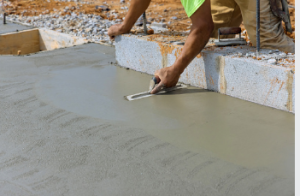Concreting South Australia is an important component of the construction industry. The most developed state in the nation and one of the most vibrant economic growth stories, South Australia requires seasoned professionals to ensure building project completion. Choosing a reputable contracting company with a long-standing client list is an excellent option. A company with a solid reputation and experience in this field can ensure building project completion with minimum disruption.
 Concrete pumping
Concrete pumping
You need to get a license to work as a concrete pump operator. A license to do this type of work is important, as it is considered high-risk work. You will also need to undergo a training course. The cost of these courses will vary from state to state.
Among the major risks associated with concrete pumping is hose whipping, or the sudden, uncontrolled motion of the concrete hose. This resulting movement can cause injuries and even knock workers over. This condition occurs when air is trapped in the hose, which can whip back and cause injuries to workers. Therefore, it is essential to understand the occurrence of hose whipping to prevent it at your workplace.
Concrete spraying
Sprayed concrete is a concrete application method that causes less environmental pollution. As air pollution is one of the leading causes of death worldwide, governments are taking significant steps to combat it. According to the World Bank Group, air pollution is responsible for 6.1 per cent of global deaths and costs $8.1 trillion annually. Its effects are most severe in low and middle-income countries. As a result, the use of sprayed concrete is expected to grow in this region.
Shotcrete equipment is available in various types, depending on the requirements. The choice of equipment depends on the type of concrete to be sprayed, how long it will take to complete the project and the availability of materials. The type of delivery system will also be an important factor. Shotcrete can be sprayed by hand or robotically. In ensuring the finished product’s quality, the equipment must be tested as per the required standards.
Concrete spraying price range
For your underground construction project, concrete spraying can be an excellent solution. It stabilises tunnels, improves worker safety, and decreases operational costs and cycle times. It also reduces environmental impacts. It can also replace the need for formwork in underground construction projects. If you’re interested in finding out more about concreting South Australia, contact Normet today.
You can get an estimate for the price of concrete spraying from several different contractors. Getting at least three quotes is best to understand market rates better. However, it’s important to note that these prices are indicative and can vary depending on the project size, the type of finish you want, and how much levelling is required.
Cost of Concrete
The cost of concrete per cubic metre is usually around $200. However, you should consider the additional labour and materials that may raise the price. Generally, concrete for driveways or walkways costs more than those slabs. In addition, some projects require the removal of existing concreting South Australia, which can add to the cost. You should also check whether you need 40 MPa strength concrete, costing as much as $350 per cubic metre.
The type of concrete and formwork will affect the cost. For example, exposed aggregate concrete is not cheap but can look good on your driveway. A concrete slab with this finish costs around $160 per square metre. However, this cost does not include the labour required to install the concrete. The labour cost can be as much as $60 per hour. Another factor that will increase the cost of concrete is the size of the project. You may wish to use spray-on concrete for small projects, which dries quickly and is cheaper than conventional formwork.
Quartzite resources in South Australia
South Australia has abundant resources of quartzite, which is used in the production of concrete and mortar. It is also used in the construction of unsealed roads. Quarrying this material has been a major industry in the state for many years. The state also has several quarries that produce aggregate. These include Stonyfell, White Rock, Para Hills, Salisbury, and Eagle.
The material is used in many applications but is especially preferred for the construction industry. It is hard, durable, and can withstand high abrasion. As a result, it can be used in stair treads, floor tiles, and countertops. It is also resistant to most chemicals and environmental conditions. In addition, quartzite is available in neutral colours and is highly durable. Its superior hardness and abrasion resistance make it the material of choice for the construction industry.
